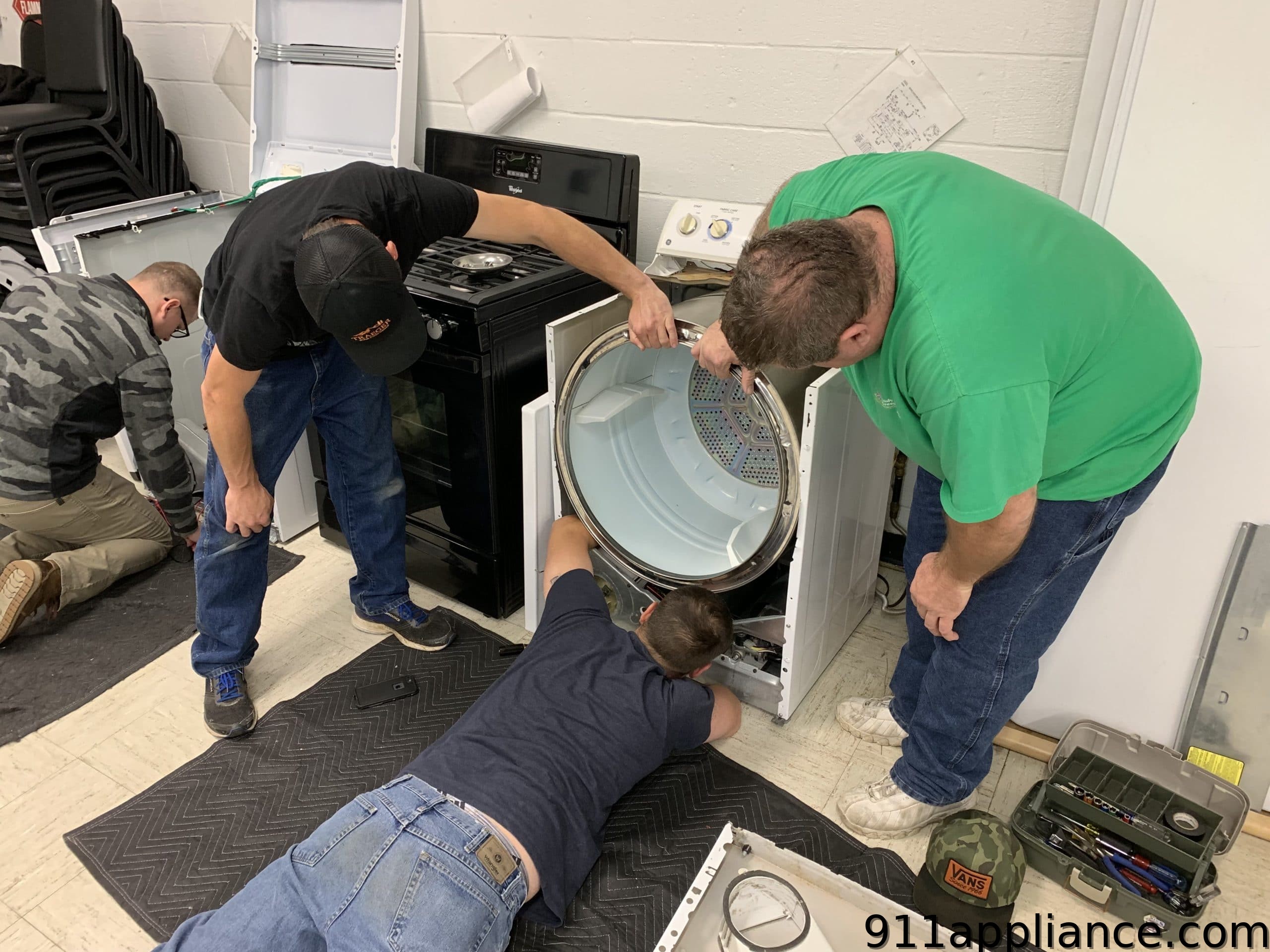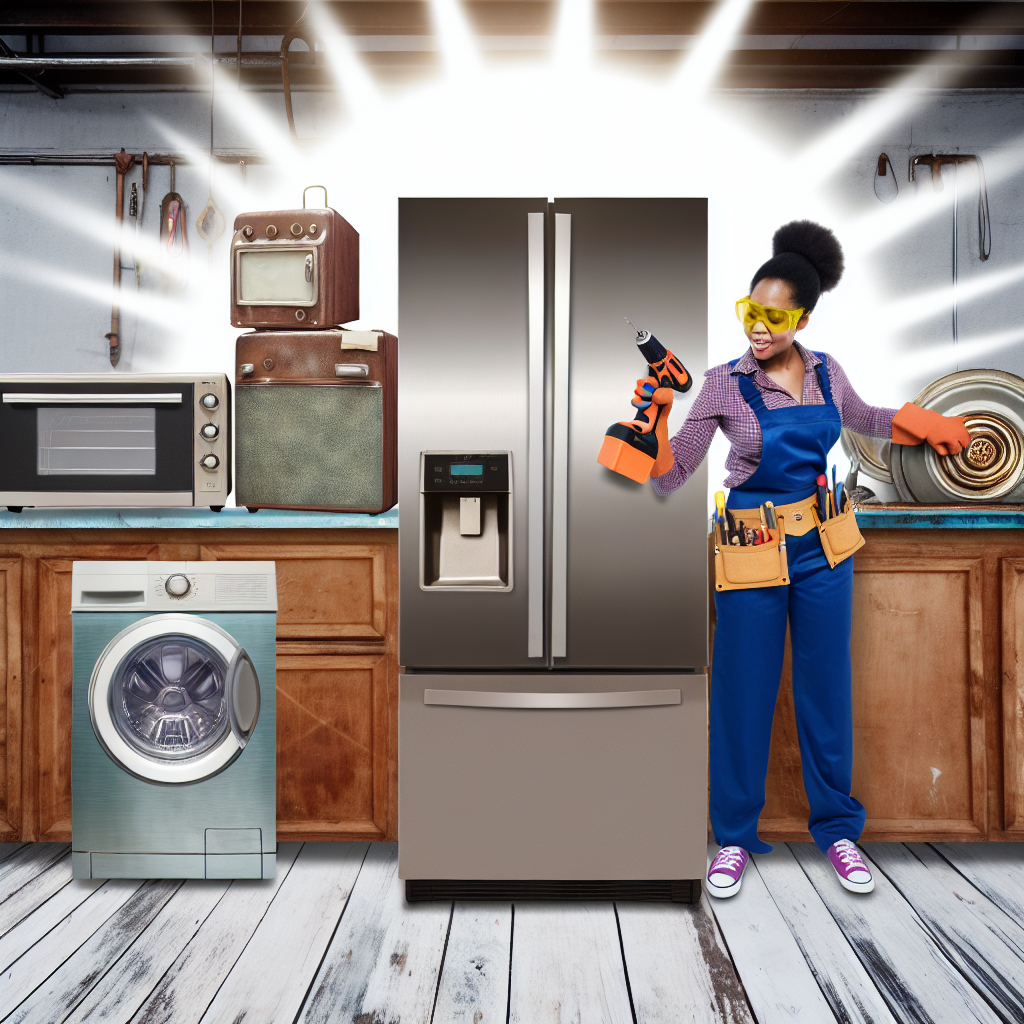When it comes to selecting and maintaining household appliances, it is important to consider both emotional and environmental factors. Appliances play a significant role in our daily lives, providing convenience and comfort. However, they also have a significant impact on the environment, contributing to energy consumption and greenhouse gas emissions. Additionally, many people develop emotional attachments to their appliances, which can influence their decision-making process. Balancing these emotional attachments with environmental considerations is crucial for making sustainable choices.
Table of Contents
- Key Takeaways
- The Emotional Connection to Household Appliances
- Energy Efficiency and Cost Savings in Appliance Selection
- The Importance of Proper Appliance Maintenance for Environmental Conservation
- Choosing Appliances that Align with Personal Values and Beliefs
- The Role of Technology in Sustainable Appliance Design
- The Impact of Appliance Disposal on the Environment
- Addressing Emotional Attachment to Outdated or Inefficient Appliances
- The Future of Environmentally Conscious Appliance Design and Innovation
- How Can Emotional and Environmental Considerations Impact Appliance Performance and Maintenance?
- FAQs
- What are emotional considerations for appliances?
- What are environmental considerations for appliances?
- Why are emotional and environmental considerations important for appliances?
- What are some examples of emotionally friendly appliances?
- What are some examples of environmentally friendly appliances?
Key Takeaways
- Emotional and environmental considerations are important when selecting household appliances.
- Appliances have a significant impact on the environment, from energy consumption to disposal.
- People often have emotional connections to their appliances, which can influence their decision-making.
- Energy efficiency and proper maintenance can lead to cost savings and environmental conservation.
- Choosing appliances that align with personal values and beliefs can promote sustainability.
Understanding the Impact of Appliances on the Environment
Appliances have a significant impact on the environment, primarily through their energy consumption and greenhouse gas emissions. Energy consumption is a major contributor to climate change, as the majority of electricity is generated from fossil fuels. When appliances are not energy-efficient, they consume more electricity, leading to higher greenhouse gas emissions. This is particularly true for appliances such as refrigerators, air conditioners, and water heaters, which are constantly running.
To help consumers make more environmentally conscious choices, energy efficiency ratings have been introduced. These ratings provide information about the energy consumption of appliances and allow consumers to compare different models. The most common rating system is the Energy Star program, which certifies appliances that meet certain energy efficiency standards. By choosing appliances with higher energy efficiency ratings, consumers can reduce their environmental impact and save money on their energy bills.
The Emotional Connection to Household Appliances
Many people develop emotional attachments to their household appliances. This emotional connection can be attributed to various factors, such as nostalgia, reliability, or even aesthetic appeal. For example, someone may feel attached to an old refrigerator that has been in their family for generations because it reminds them of their childhood home. Others may feel attached to a particular brand or model because it has never let them down.
This emotional attachment can influence the decision-making process when it comes to selecting new appliances. People may be hesitant to replace their old appliances, even if they are outdated or inefficient, because of the emotional connection they have developed. However, it is important to balance this emotional attachment with environmental considerations. By choosing energy-efficient appliances, consumers can reduce their environmental impact without sacrificing the emotional connection they have to their appliances.
Energy Efficiency and Cost Savings in Appliance Selection
One of the financial benefits of selecting energy-efficient appliances is long-term cost savings. While energy-efficient appliances may have a higher upfront cost, they can save consumers money in the long run. Energy-efficient appliances consume less electricity, resulting in lower energy bills. Over time, these savings can offset the initial investment and lead to significant cost savings.
In addition to long-term cost savings, selecting energy-efficient appliances may also make consumers eligible for rebates or incentives. Many utility companies and government programs offer incentives for purchasing energy-efficient appliances. These incentives can further reduce the cost of purchasing energy-efficient appliances and provide additional financial benefits.
When comparing energy efficiency ratings, it is important to consider the specific needs and usage patterns of your household. For example, if you live in a hot climate and use air conditioning frequently, it may be more beneficial to invest in an energy-efficient air conditioner rather than a dishwasher. By understanding your household’s specific needs, you can choose the most efficient appliances that will provide the greatest cost savings.
The Importance of Proper Appliance Maintenance for Environmental Conservation
Proper maintenance is crucial for extending the lifespan of appliances and reducing the need for replacement. Regular maintenance tasks can help improve energy efficiency and reduce environmental impact. For example, cleaning the coils on a refrigerator can improve its efficiency and reduce energy consumption. Similarly, cleaning or replacing air filters in air conditioners can improve their performance and reduce energy consumption.
In addition to regular maintenance tasks, it is important to address any issues or malfunctions promptly. Ignoring small problems can lead to larger issues that may require more extensive repairs or even replacement. By addressing issues early on, you can extend the lifespan of your appliances and reduce waste.
Choosing Appliances that Align with Personal Values and Beliefs
Personal values and beliefs can also play a role in appliance selection. Many consumers are becoming more conscious of issues such as animal welfare, fair labor practices, and sustainability. They want to support companies that align with their values and beliefs. Fortunately, there are resources available to help consumers research and choose appliances that align with their personal values.
For example, there are certifications and labels that indicate whether an appliance meets certain ethical or sustainable standards. The Fair Trade label, for instance, ensures that the product was produced under fair labor conditions. Similarly, the Forest Stewardship Council (FSC) certification indicates that the wood used in the appliance comes from responsibly managed forests.
By researching and choosing appliances that align with your personal values, you can support companies that prioritize ethical and sustainable practices. This not only benefits the environment but also sends a message to companies that consumers care about these issues.
The Role of Technology in Sustainable Appliance Design
Technology plays a significant role in creating more sustainable appliances. Advancements in smart home technology have made it possible to monitor and control appliances remotely, optimizing their energy consumption. For example, smart thermostats can learn your schedule and adjust the temperature accordingly, reducing energy waste.
Renewable energy sources are also being integrated into appliance design. Solar-powered appliances, for instance, utilize the sun’s energy to operate, reducing reliance on fossil fuels. These advancements in technology have the potential to significantly reduce the environmental impact of appliances.
However, it is important to consider the potential drawbacks of these technologies as well. For example, smart home technology relies on internet connectivity, which can be vulnerable to hacking or privacy breaches. Additionally, renewable energy sources such as solar panels may not be feasible for all households due to factors such as location or cost. It is important to weigh the benefits and drawbacks of these technologies before incorporating them into your appliance selection.
The Impact of Appliance Disposal on the Environment
The disposal of appliances can have a significant impact on the environment. Many appliances contain toxic chemicals, such as mercury or lead, which can leach into the soil and water if not disposed of properly. Additionally, the disposal process itself can contribute to greenhouse gas emissions if appliances are not recycled or disposed of responsibly.
To mitigate these environmental impacts, it is important to choose responsible disposal options. Recycling programs are available in many communities, allowing appliances to be broken down and their components reused or recycled. Some manufacturers also offer take-back programs, where they will collect and recycle old appliances when a new one is purchased. Donating appliances to charitable organizations is another option, as it allows them to be reused by those in need.
By choosing responsible disposal options, consumers can ensure that their appliances are disposed of in an environmentally friendly manner and reduce their overall environmental impact.
Addressing Emotional Attachment to Outdated or Inefficient Appliances
Addressing emotional attachment to outdated or inefficient appliances can be challenging. However, there are ways to repurpose or recycle old appliances that can help reduce waste and environmental impact. For example, old refrigerators can be converted into outdoor coolers or storage units. Similarly, old washing machines can be repurposed as planters or fire pits.
If repurposing is not an option, recycling is the next best choice. Many recycling programs accept appliances and will break them down into their components for reuse or recycling. By letting go of outdated or inefficient appliances and finding new uses for them, consumers can balance their emotional attachment with the need for more sustainable choices.
The Future of Environmentally Conscious Appliance Design and Innovation
The future of environmentally conscious appliance design and innovation looks promising. As consumers become more aware of the environmental impact of their choices, there is a growing demand for sustainable appliances. This demand is driving companies to invest in research and development to create more energy-efficient and environmentally friendly appliances.
Advancements in energy efficiency are expected to continue, with appliances becoming even more efficient in the coming years. Additionally, renewable energy sources are likely to play a larger role in appliance design, as the technology becomes more accessible and affordable.
Consumers also have a significant role to play in driving change. By demanding sustainable appliances and supporting companies that prioritize environmental conservation, consumers can influence the market and encourage further innovation.
In conclusion, considering both emotional and environmental factors is crucial when selecting and maintaining household appliances. Appliances have a significant impact on the environment through their energy consumption and greenhouse gas emissions. Additionally, many people develop emotional attachments to their appliances, which can influence their decision-making process. By balancing emotional attachment with environmental considerations, consumers can make more sustainable choices that benefit both themselves and the planet.
How Can Emotional and Environmental Considerations Impact Appliance Performance and Maintenance?
When it comes to appliance performance and maintenance, emotional and environmental factors play a significant role. Stress and extreme temperatures can lead to common appliance issues and solutions such as malfunctioning parts and decreased efficiency. Taking care to manage emotions and maintain a suitable environment can help prevent these problems.
FAQs
What are emotional considerations for appliances?
Emotional considerations for appliances refer to the impact that appliances have on our emotions and well-being. This includes factors such as the design, color, and functionality of appliances.
What are environmental considerations for appliances?
Environmental considerations for appliances refer to the impact that appliances have on the environment. This includes factors such as energy efficiency, water usage, and the materials used to manufacture appliances.
Why are emotional and environmental considerations important for appliances?
Emotional and environmental considerations are important for appliances because they can affect our quality of life and the health of the planet. By choosing appliances that are both emotionally and environmentally friendly, we can improve our well-being and reduce our impact on the environment.
What are some examples of emotionally friendly appliances?
Examples of emotionally friendly appliances include those that have a pleasing design, are easy to use, and have features that make our lives easier. For example, appliances with intuitive controls, soft lighting, and quiet operation can all contribute to a positive emotional experience.
What are some examples of environmentally friendly appliances?
Examples of environmentally friendly appliances include those that are energy-efficient, use less water, and are made from sustainable materials. Appliances with Energy Star ratings, low-flow water fixtures, and those made from recycled materials are all examples of environmentally friendly appliances.



